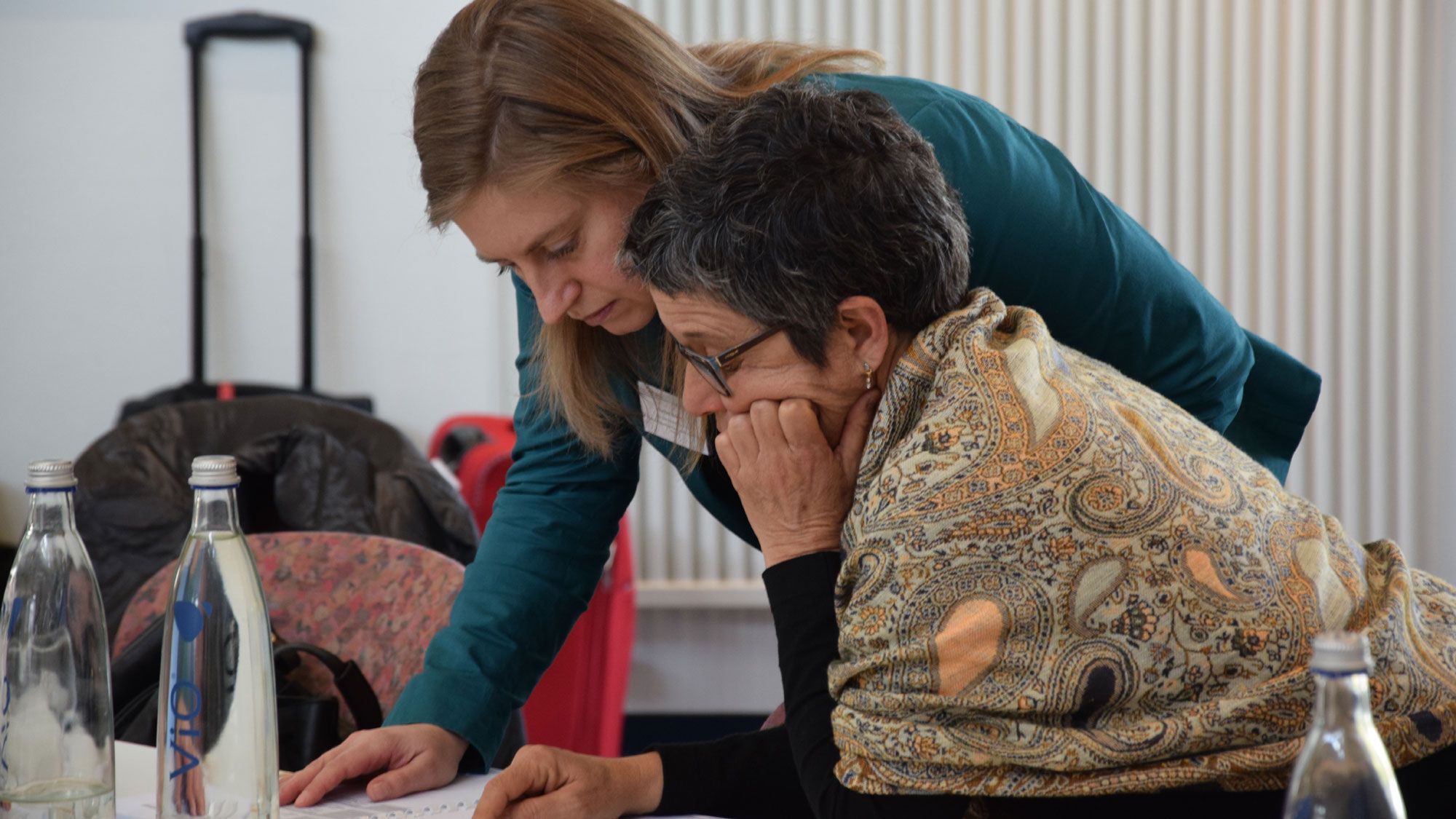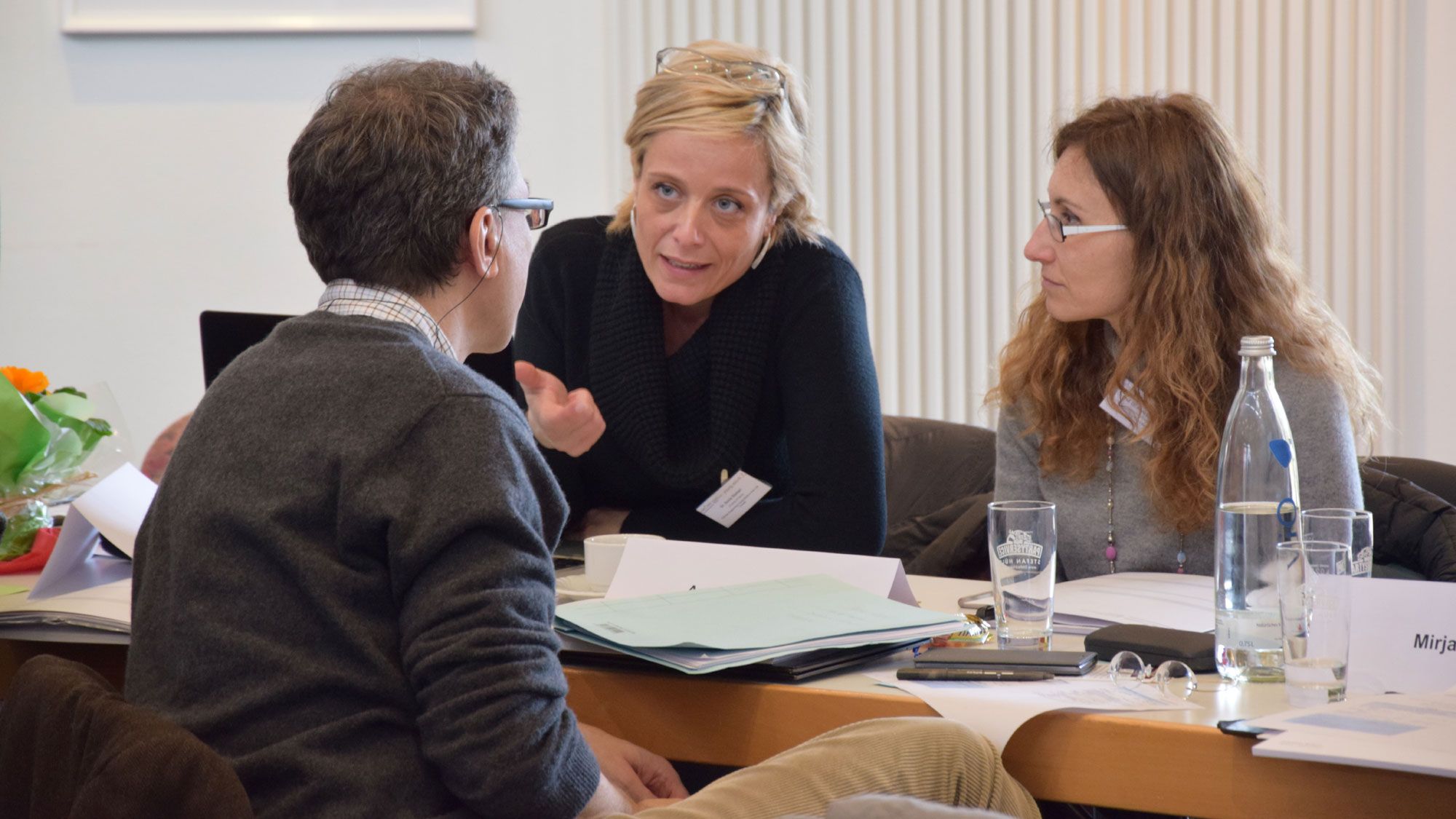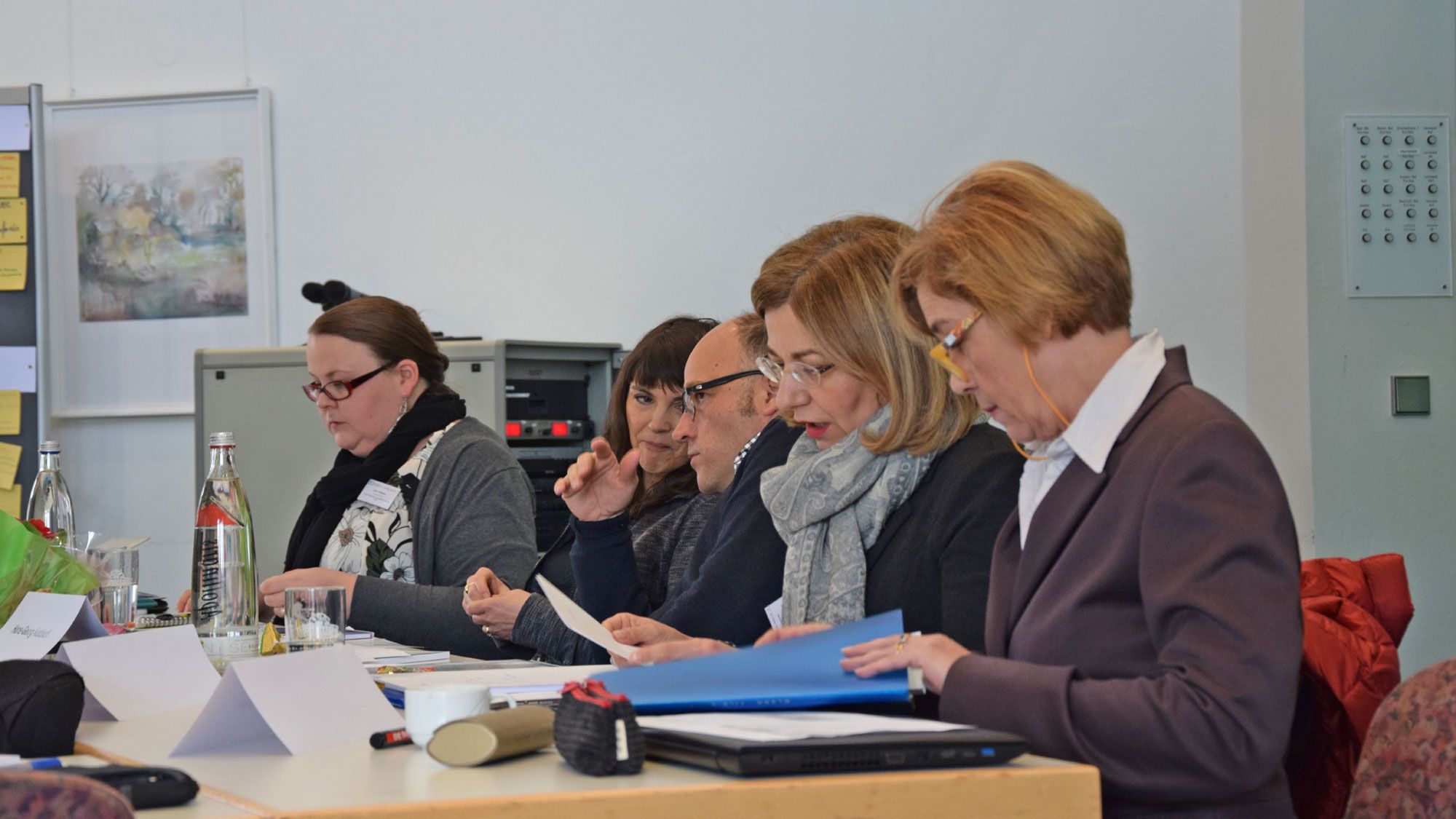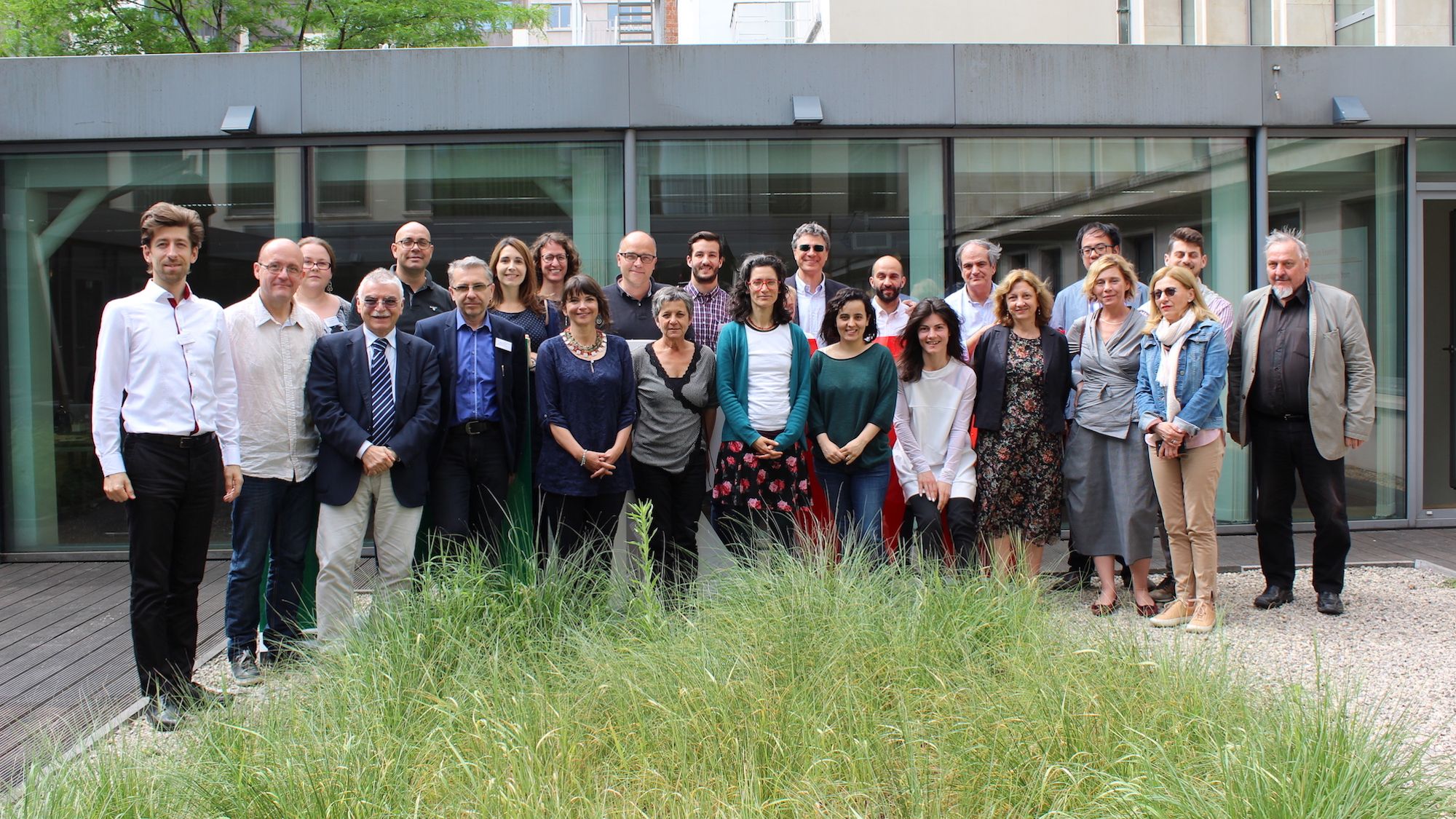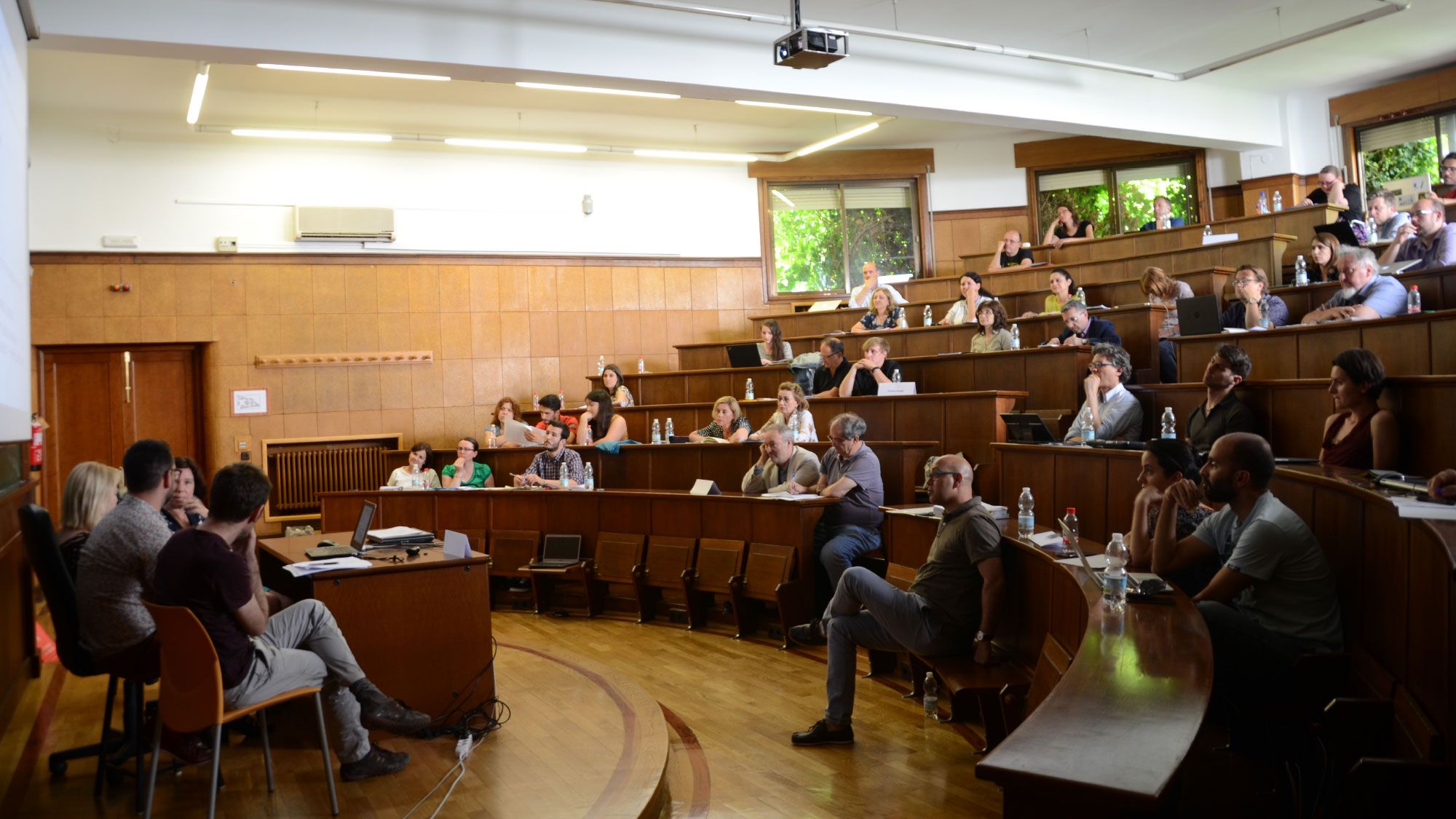Newsletter
Stay up to date with our newsletter. Here you find information on the newest developments within our project.
Newsletter 1 (June 2016)
Our first newsletter is dedicated to the introduction of the project its objectives, work plan and impact as well as to the report of the project's kick-off meeting in spring 2016.
Newsletter 2 (January 2017)
Our second newsletter is dedicated to the project's first milestone, progress made in the single work packages as well as the highlights of our meetings in Münster, Porto and Barcelona.
Newsletter 3 (May 2017)
In our third newsletter, we look back on our first year, which included, inter alia, establishing a common document database as well as reaching our second milestone by completing the research design and preparing an International Report on LLL Policies. The report, which was published in April 2017, aims to compare and synthesize the nine national reports on LLL policies presented by the project partners. We also take a look at Life Course Research and its relevance for the project.
Newsletter 4 (December 2017)
In our fourth Newsletter, we are looking back as the project entered its second year this spring (April 2017). In the last 6 month, the focus has been on the young adults' themselves, their needs, their living conditions and the obstacles they face. Whether by interviewing them in person and giving their needs a voice or by talking with experts and policy-makers about their needs – their transition from education to work in an age of uncertainty was leading our work. Therefore, this Newsletter has the overall theme of 'growing up in crisis' to explore the effects of the economic crisis on young adults from different angles.
One highlight of this Newsletter is that we were able to include the perspectives of our European Advisory Board (EAB) on the impact of the financial crisis on young adults. Pepka Boyadjieva (Bulgaria), Vitor Sérgio Ferreira (Portugal), Fabio Massimo Lo Verde (Italy), Pau Serracant (Spain) and Renata Ozorlic Dominic (Croatia) describe changing contexts and changing life courses from their national perspective.
Newsletter No. 5 provides an update in the Project's activities including the completion of the Data collection, treatment and analysis phase and brings insights from the feedback given by the European Advisory Board. It also offers a brief introduction into two local case studies by Tiago Neves, from the University of Porto, who describes the casing for the Portuguese Functional Regions and by Georgi Apostolov, from the South-West University in Blagoevgrad, who presents the casing for the Bulgarian Functional Regions. A further highlight in this Newsletter is the insightful discussions by several early career researchers who share their perspectives and experience working in YOUNG_ADULLLT. The Newsletter closes with a discussion of 'Vulnerability'. In his contribution, Jozef Zelinka discusses the concept of ´vulnerability´ including the application of the concept both in the conceptual and methodological frameworks of this research will be presented in order to discuss a number of key aspects of research with/about groups 'in vulnerable positions'.
The sixth Newsletter of YOUNG_ADULLLT informs about the current progress of the last research phase. In the news section, a particular attention is paid to the Comparative Analysis Report done within Work Package 8 as well as to the Policy Roundtables and Policy Briefs conducted and documented within Work Package 9. Following this, the Newsletter presents two Brussels meetings, the European Policy Roundtable as well as the 5th Consortium Meeting of YOUNG_ADULLLT, which took place mid-June this year. The section closes with a brief description of the new homepage feature providing exclusive results from the policy mapping, reviewing and analysis phase. In the second section, Borislava Petkova (Plovdiv University) discusses young people´s personal dreams and desires, especially at the beginning of their professional careers, and their interrelation with lifelong learning policy measures. In the third section, Tiago Neves together with Ana Bela Ribeiro and Mariana Rodrigues (all from the University of Porto) summarise the lessons from the conducted Policy Roundtables across European Functional Regions and portray the challenges connected with communicating research to policy practitioners. Finally, the fourth section gives an overview of the next steps in the project, which will culminate with presenting its overall results at the Policy Seminar & Final Conference in Lisbon (Portugal) in February next year.
The final Newsletter of YOUNG_ADULLLT presents the overall results of a three-year research period. It gives an overview of the central findings in Work Package 8, which are entailed in the Final Report to Research, Policy, and Practice. In addition, it gives a first insight into the European Policy Brief as part of Work Package 9, which derives from national Policy Briefs and summarises the most relevant information regarding lifelong learning policy-making on regional and local levels. Finally, the Newsletter informs about the Final Conference & Policy Seminar, which took place on February 11, 2019, as well as about the 6th Consortium Meeting of YOUNG_ADULLLT, both of which were hosted by the Calouste Gulbenkian Foundation in Lisbon, Portugal.



